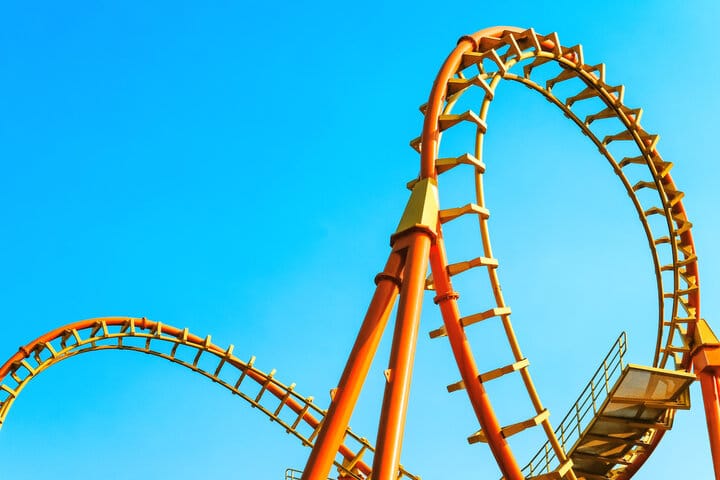How to look at addiction differently and resolve it
To have an addiction to something means you are reliant on the feeling it creates in your life.
For example, having an addiction to food can be about the comfort, safety, and fullness it provides you with. Having an addiction to drugs could be about novelty, escapism, and feeling physically/mentally better.
The addiction in your life is usually not about the thing itself but the feelings and emotions behind it.
There is also another dimension to addiction – the drama it creates and residual emotions afterwards.
So for example, if you feel anxiety, guilt, shame or other negative emotions after engaging with your addiction it is part of the drama and serves to fuel the addiction.
Addiction as a rollercoaster
Addiction in it’s purest form is like having a rollercoaster that keeps you going from high to low and vice versa, keeping you chained to the unconscious patterns of your addictive behavior.
There is nothing wrong or right, good or bad about this. Only what is preferred by you.
Having an addiction is not a “bad” thing. It is a neutral experience you are having in response to certain emotions and mental patterns within you.
It can stem from triggers, pain, anxiety, or any other negative emotion that triggers your addiction.
The addictive behavior is designed to alleviate and raise your energy artificially through this external process – whether it be drugs, food, sex, or any other stimulant.
The Solution
The solution to every addiction is about accepting it as a process designed to help you, and not as an enemy or monster. Once you de-humanize the addiction it only makes it worse.
It’s time to accept that it is fine to have an addiction and treat it more neutrally. You are not failing if you are experiencing this, you are simply learning a new way of dealing with your inner world, emotions, and experience of life.
Therefore once you neutralize your addiction, and no longer see it as a “monster” that controls you, you are able to bring it back into balance.
You can look the addiction in the eye to resolve it
One such way is to allow yourself to indulge in the addiction in a monitored way, without allowing any more feelings of fear, regret, guilt or shame.
When the urge or compulsion to play out the addiction behavior arises, you can choose to willingly indulge in the addiction and give into it without the drama.
You can even set a designated time to indulge in your addiction.
This may sound like a radical approach, yet it can prove more beneficial to most people than fighting the addiction forcefully.
Once you give into the addiction without resistance, there is no more “drama” or “joy” to be extracted from the play, the friction, the “forbiddenness” of the addiction.
It suddenly loses the edge. You can suddenly do anything you want, there’s no “restrictions” or “feeling bad” afterwards. You don’t need to spiral into a loop of shame, self-hate or guilt after. You’re not that of a horrible person all of a sudden.
When you approach addiction from this direction you will observe it naturally dissolves and loses it’s power on your psyche. You are now able to see it as a behavior that is neither “good” or “bad” – yet this allows you to choose your behavior from a more neutral place.
Conclusion
With all of this being said, every case of addiction may be different and unique, some addictions may require more intervention and help than others. Some are more dangerous and risky for this method, for example in addictions involving heavy substance abuse or other risky behavior. Please use your own judgment and discernment, and act with the needed caution for your situation. Trust your intuition and allow yourself to be guided with professional help if needed.
Thank you for reading,
Aaron Avraham | Limitless Master






